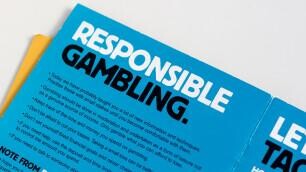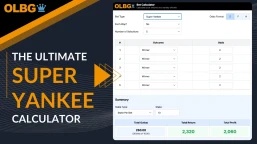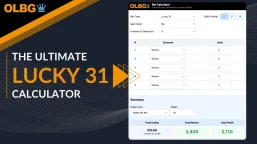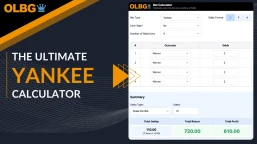
With hundreds of different betting sites, finding the best can be confusing. I'll guide you through and find the most suitable bookie for you.
Move beyond the realm of traditional online betting sites as we dive into the world of betting exchanges in this comprehensive guide.
Here, you'll learn the mechanics of how betting exchanges work, their advantages, and when they might not be the right choice.
As we know knowledge is power - so bolster your betting strategies today.
A Complete Guide to Betting Exchange Mastery. 🎯
What Is A Betting Exchange?
In this guide, we will introduce you to and explain the workings of a betting exchange. Differing from traditional bookmakers, a betting exchange offers another string to your betting bow.
- A betting exchange is a platform where two types of bets are brokered.
- A traditional back bet can be placed against another player who is offering a 'lay bet'
- A lay bet being what a traditional bookmaker offers.
- Therefore, a betting exchange is a place where you can both place a bet and be the bookmaker.
- Backing is betting for a selection to win (In Blue).
- Laying is betting against a selection winning (In Pink).
How Can I Sign Up To A Betting Exchange?
There are currently betting exchanges where you can back, lay and trade selections.
We have comprehensive reviews on all the exchanges, which include the latest sign-up offers and free bet promotions.

You can check out the pros and cons of each, which should include the commission rate. The amount of commission can vary depending on your usage of a site.
Once you have chosen an exchange, you can start backing, laying and trading.
How to make a 'back' bet on a betting exchange
Making a 'back' bet on a betting exchange is the same as making a bet on a selection with a traditional bookmaker.
When making a back bet on a betting exchange, you will have an available price to bet on.
In addition to this, you are able to see and make a request for higher odds than are available at the time of placing it.
If you decide to 'place an offer' at a higher price, this bet will be placed into the system, and you can wait to see if someone else is willing to 'lay' your bet to the odds you have requested.
If you place you bet at higher odds than are currently available you bet will be placed in the system and marked as 'unmatched'.
This simply means that the back bet you have ordered has yet to be matched by someone willing to 'lay' the bet at those odds.
Sometimes, you order will be 'matched' by a lay, other times it will remain 'unmatched'
Betfair Exchange Example
You see the odds on Liverpool to beat Chelsea are 2.5.
- You could make a back bet at 2.5 immediately
- You could offer [place an order] to bet at 2.6 or 2.7 or 2.8 and hope that someone matches your bet.
Obviously the higher odds you request the less likely your bet will be matched, and clearly people looking to Lay Liverpool will take the lowest odds requested first.
Smarkets Exchange Example
You want to back Constitution Hill for the Champion Hurdle but the odds you feel are too short (1.4), you can submit a back bet at (1.6) and wait for that to be matched.
If it is not matched before the race start you can cancel the bet.
How to make a 'lay' bet on a betting exchange
When you think an outcome will not happen you have the opportunity of 'laying' a bet on the betting exchanges.

The Definitive Guide to Laying Horses
Laying on a betting exchange is offering to lay a bet by offering odds to another punter on the exchange who wants to 'back' the outcome.
You offer odds and your 'liability', [the amount you are willing to lose] if you are wrong and the punter has the option to accept the odds you are offering or not.
The rise in popularity of exchanges has lead to many punters trying their luck at acting as the bookie and laying bets.
In order to lay a bet you have to see what price it is currently trading at.
Now decide whether you want to lay at that price and have your bet matched straight away or you can offer your own odds in the hope that a backer will want to match your bet at those odds.
If the bet is not matched then no bet takes place and the stake remains in your account.

Laying Horse Racing Favourites On Betfair
Matchbook Laying Example
In the Liverpool v Chelsea match, you want to lay Chelsea.
If Liverpool win or draw then your bet would win.
Lets say Chelsea are 2.8 to back and 3.0 to Lay.
You don't want to risk an unmatched bet so you lay £50 at the available price of 3.0 (2/1).
This means someone else is betting on Chelsea at 3.0 (2/1) and if Chelsea win you have to pay them.
Hence if Chelsea win (and your bet loses) you have to pay out £100, but if Chelsea lose or draw (and your bet wins) you get to keep their £50 stake.

Betfair Laying: How Many Horses Can Win?
Advantages Of Using Exchanges
1. Better Odds for Backing
Exchanges claim to offer on average 20% better odds than traditional bookmakers.
This figure is somewhat skewed as most short-priced selections will be more or less the same odds on an exchange as they will be in the bookmakers, sometimes they are even worse.
However, bigger price selections, especially those over the odds of 10/1, you do often receive a much bigger price than the traditional bookmakers are offering, but always check all bookmakers odds as well as exchanges as this isn't always the case.
2. Betfair SP
Betfair has its own starting price [SP] system in place which is far superior in terms of the size of the odds against the Industry SP prices.
If you like to bet and NOT take a price then I strongly suggest using an exchange for SP betting. You will not get things like 'Best Odds Guaranteed' but you will certainly, over time, get better odds than trying to take prices to beat the market.
I personally recorded every bet I made over a three year period with
- SP
- Price Taken
- Betfair SP
Betfair SP outperformed industry SP by 30% in my case, with the average price of winners in the 9/2 [5.50] range.
3. Trading on Exchanges
Exchanges are unique in that they let you trade on events and lock in a profit whatever the outcome before the event takes place.
With traditional bookmakers you can only win money if you correctly predict the outcome of an event but with exchanges you can win money simply by predicting market moves.
It is a little like the stock market in that you want to back at big odds then lay at smaller odds or lay at smaller odds and back at bigger odds.
If this is done successfully then the punter can create a situation where they win whatever happens or simply have a risk free bet on an event.
Trading Example
You bet £10 on a horse in an ante post market at 66/1 knowing it is a very likely runner. Lets call this bet A.
Weeks or even months later when other more fancied rivals have been ruled out of the race the horse is now trading at 10/1.
Currently your situation is you get £660 profit if the horse wins, and £10 loss if the horse loses.
Lets say you decide to lay the horse at 10/1 for £50. Call this Bet B.
Now if the horse wins:
- Bet A wins £660
- Bet B loses £500
- You win £160
- Bet A loses £10
- Bet B wins £50
- You win £40
By adjusting the stake of the second bet you can adjust your possible returns in each situation. Obviously you win less on the winner this way, but you can guarantee a profit which is often useful.
This is known as 'greening out' as all of the potential wins on each horse will be shown in green, indicating that outcome is profitable.
You can apply this to any market on any sport both before the event starts and also during play if in-running betting is available.
4. Market Warning Signs
Exchanges are renowned for providing information about events that is not publicly available through market moves.
For example, horses that are very well backed on the exchanges are very likely to run well whilst those that drift alarmingly rarely perform well.
In ante-post markets, a major drift is often followed by announcement in the following days that a horse is not going to take part in the race.
5. Betting In Running
Exchanges offer the option of in-running betting on all UK and Irish horse racing, almost all football matches and many other sports and televised events.
Betting in-running adds an extra dimension to the service they offer as it caters to the needs of even more punters.
Betting in running requires different disciplines to regular betting.
Betting in-running advice is a complete subject on its own and is available for most bookmakers but the exchange is where the betting in-play comes into its own.
6. Hedging for Better Cash Out Returns
Cash-out is part and parcel of most punters weekly activity today and you can even cash out on exchanges today too.
However, the cash-out offers generally available are not the best returns you can get at the time you make your decision to do so.
Cash-out is just another name for 'hedging' but if you can do the math yourself, or use the Exchange 'what if' facility, you are likely to be able to make better cash-out decisions for your pocket.
Hedging Example:
- You have a football accumulator with 5 selections.
- 4 Selections have already won and you stand to win £400
- The final selection is priced at 1.95 to back and 2.00 to 'lay'
You could lay the selection not to win, for £200.
- If the selection won you would lose £200 on the lay but win the £400 on the accumulator = £200 profit
- If the selection lost, you would win £200 on the Lay bet you made, but receive nothing back for the losing accumulator = £200
That lay stake could be £100, £50 or if you had completely lost confidence in the final selection, even more. It is up to you, but it is good to have the option to hedge your bets with a betting exchange account.
Disadvantages Of Exchanges
1. Liquidity
Unlike at a bookmaker where (within reason) you can bet what you want at the price they quote, with exchanges it depends on what the other punters are offering.
Much of the time this isn’t a problem but on some of the smaller events or less popular sports then there may be very little available at sensible prices.
What is Liquidity on a Betting Exchange?
Liquidity is the amount of money available to back or lay on selections within the given market you wish to bet in.
You will find more money, and therefore liquidity on the bigger events and more popular markets and far less money to bet in the more marginal sports and specialised betting markets.
We undertook a comparison of the best betting exchanges and found that of the 3 exchanges available in the UK, the best liquidity was to be found in the following order.
- Betfair
- Smarkets
- BetDaq
Sometimes you will find you will be able to make a bigger bet with a traditional bookmaker where there is less exchange liquidity on smaller events and more marginal markets than betting exchange liquidity will offer.
Liquidity Example
You have decided on a football tip and seen the odds for Liverpool at 2.5, but the amount of money available at that price (usually shown underneath) is only £4.
The next best price might be 2.46 where there is £12,000 available.
Hence if you wanted to bet £50 on Liverpool you could only match £4 at 2.5 and £46 at 2.46.
2. Unmatched Bets
If you are placing many bets it is not too uncommon to forget about some unmatched bets you may have put up.
Due to changes in circumstances such as non runners in ante-post horse racing markets or fallers on in running horse races, the odds you have put up may become very enticing for someone else.
Please be aware your bet may be taken before you have a chance to react and cancel your bets.
Bets are sometimes canceled though to protect the punter from this, in particular any pre-event market will be closed at the off and all bets cancelled and a new market potentially started for in-running betting.
Betting Exchange Commission
Commission
Exchanges don't actually lay any bets themselves so they make their money by charging a commission on each winning bet. The typical commission charge is 5% of winnings.
Betting Exchange Commission Comparison
Commission rates will decrease the more you bet with exchanges but to make a significant decrease in the figure you will need to be a very serious punter placing several bets a day.
It can sometimes be difficult to work out what the real odds you are getting once the commission has been applied.
If you are on a lower commission rate than 5% you can adjust the settings easily to reflect that.
Commission Example
If you bet £10 at 6.0 your return is £60 before the commission. If you are on 5% commission this is applied to your winnings (£50) and hence £2.50 commission is deducted from your £60 return leaving £57.50.
Advanced Laying Techniques on Betting Exchanges
There is a huge difference in knowing how to use exchanges and knowing how to make the most of them
This betting school lesson aims to help you understand some of the more complex uses of exchanges in a simple to understand format
Advanced Laying on Exchanges
Over the past decade or so laying has become more and more popular.
Most punters will either be laying an outcome because they think it has very little chance of being the winning outcome or because they think the odds are too short for that outcome.
They are making a perceived ‘value lay’. Both of these styles of laying have their advantages and disadvantages and include the following approaches.
- Laying likely losers
- Value laying
- Ideal Laying opportunities
- Place laying
- Trading
- Cashing out
- In Running Laying
- Betfair Sp laying
Laying Likely Losers
If laying a selection simply because you think it has very little chance of winning you are most likely laying bigger priced bets which makes your returns smaller.
You will probably have more successful bets this way but a couple of lays that go on to win can cancel out many successful lays, presuming you are not laying very short odds.
Value Laying
If laying selections because you think their odds are too short you will probably find you have fewer successful lays but the long term profits may improve, presuming your intuition about value is correct.
Reputations often play a large part in deciding the odds, more so than form on many occasions and this can lead to some selections having much shorter odds than they have any right to be.
These reputations will sometimes turn out to be correct but often a reputation is no substitute for solid form.
Correctly choosing when to follow form and when to follow reputation can be a successful part of any laying strategy.
Ideal Laying Opportunities
Ideally your lays will fit into both categories of lay, you will not only think the selection has little chance of winning but you will also think the odds are far too short.
This sort of lay might pop up in a horse race, when a horse has beaten weaker horses by a wide margin so is a short price next time out but this time the horse is running on ground conditions in which it is unproven, so could easily flop.

Alternatively in team sports a side may have had an easy run of fixtures making their form or ability look better than it is leading to a too short a price being offered.
On top of that they might have a couple of key injuries which massively reduce their chances of getting a result in their next match.
Looking out for these lay opportunities they can often lead to the best profits and best strike rates.
Place Laying
Place laying is ideal for when you are really confident about a selection losing or simply want to reduce the odds at which you are laying.
If you think the bookmakers have wildly overestimated a team or horse you can lay them to not finish in the places at around 1/4 of the odds you could laying the selection to win (depending on place terms).
Sometimes you may find yourself opposing a selection but not wanting to lay it at the full odds, in this instance place laying may appeal more.
Place Laying, Horse Racing System
Trading
Trading individual sports is something that is covered in more depth in other guides and blogs but there are broadly two types of trade:

Betfair Swing Trading or Scalping - Does It Matter?
Planned Trades
Often you may spot an opportunity where you are very confident that the odds of a selection will move in one direction, be it before an event takes place or during the event.
In these instances, you can back or lay the selection early (back if you think the odds will shorten, lay if you think the odds will lengthen) and then make the opposite bet later when the odds have changed in your favour.
Presuming you are correct about the odds change you can guarantee yourself a profit whatever happens, the more the odds change the more profit there is to be made.
Unplanned Trades
On other occasions, you may place a genuine bet but either change your mind or find yourself in a great position where the odds have changed massively in your favour.
You can simply back or lay your bet on the exchanges to either get rid of your bet if the odds are still the same or guarantee a profit if the odds have changed in your favour.
Cashing Out
An increasingly popular tool is the Cash Out option.
Depending on how well your bets are currently doing and how many selections might already have won you are offered an amount to close the bet and end any risk.
The amount offered will depend on the likelihood of the bet winning.
Sometimes you might accept a lesser amount than you would have won only to watch your selections still win but other times you'll collect on a bet that goes on to lose.
There are pros and cons when cashing out, but it is a useful tool if you do the maths.

In Running
In running betting began with the exchanges but now regular bookies offer in running betting too, however sometimes they don’t offer as many markets as exchanges and often the odds aren’t as competitive as they are on exchanges.

In Running Betting Basics
Betfair SP
Punters who bet starting price with bookmakers might be better off turning their attention to Betfair and in particular the Betfair SP.
The Betfair SP is calculated by looking at the relationship between amounts of money requested at SP by opposing betting parties and it is claimed that it is a much fairer way of deciding the starting price than the method used by traditional bookmakers.
The SP is known once the race begins and is often better than the bookmakers SP.
Not long after Betfair SP became available a study over 18 months by Flatstats.co.uk showed that Betfair SP was higher than bookmakers SP 86% of the time resulting 14.5% better returns taking into account 5% commission for a winning bet on Betfair.
However these margins were reduced when backing just favourites which is something to contemplate for favourite backers.
Bots
Anyone reading up about how to make the most use of betting exchanges will probably have come across information about bots or betting bots.
This is effective software that will automatically trade for you given certain criteria for bets and trades that you request.
If away from your computer you can programme these bot bets to be placed at a time of your choice or when certain criteria are met
E.G
- Back the second favourite in every race at Plumpton when the favourite is bigger than 2.0.
- Lay the second and third favourites at Cheltenham when they reach a certain price and green up.
- Back Manchester United when at HT the score is 0-0.
- 10 minutes before kick off lay bottom of the table Sheffield United and green up in play when they reach a price of 5.0 or above.
Every year the bot options become even better offering the trader a myriad of opportunities.
Laying Horses
Bookie Price And Exchange Prices
It is always important to remember that prices on betting exchanges are invariably bigger than those available at the traditional bookmakers.
This is generally because the bookmakers margins are removed, and exchange users pay a commission on bets..
Anyone who is laying bets on exchanges is going to have to lay the bets at over the odds available elsewhere so it is important to keep value in mind.

If the bookies are 9/4 about a favourite in a particular race the price on Betfair is likely to be around the 5/2 mark.
Laying In Running
One type of laying that is available on the exchanges is laying in running. This means looking to lay horses whilst they are taking part in their races.
It is a somewhat specialist skill as the layer will need to have a good understanding of the way horses travel, what can lead to them getting blocked in and a good understanding of pace.
It is also important to have a great knowledge of the form book as horses that appear to be going well but find little under pressure are an in running punter's dream.
Things to learn before laying horses
- Understand pace if you are laying in running
- Learn how different horses travel
- Study market movements
- Understand ante post markets as they can be layers gold mines
- Identify reasons to oppose horses

Trading
A layer on an exchange can simply make money by laying horses that are later going to be trading at a bigger price.
Once the layer has got themselves into a position where they will profit if a horse is beaten, they can then back the same horse at bigger odds (if the market allows it) without needing to deposit further cash based on the position they have already achieved.
The amount of profit that can be locked in will depend on the original stake and how big the drift in the horse's price has been.

Predicting which horses are going to contract in price and which are going to drift is often difficult.
There are, however, some horses that always seem to drift in the betting and there are also horses that have not run for a while that drift because of question marks over their fitness.
Other reasons horses drift include being unproven in the conditions of the race (ground or trip) or simply due to the strength of other horses in the same race.
Trading For A Free Bet
You find a horse that you expect to be gambled on during the day and hence you expect its price will shorten.

Example
You have £100 on at 8/1 in the morning (Bet 1)
An hour before the off the horse is trading at 5/1.
You can lay off your £100 stake at odds of 5/1 (Bet 2)
If the horse loses:
Bet 1 loses => you lose £100
Bet 2 wins => you win £100 (the amount of stakes you layed)
You break even overall
If the horse wins:
Bet 1 wins => you win £800
Bet 2 loses => you lose £500 (the amount you had to pay out laying 100 @ 5/1)
You win £300 overall
So essentially what you have created is a situation where you win £300 if the horse wins but lose nothing if it loses - essentially a free bet!
Ante Post
Ante Post betting is often a layer's paradise because a horse has to simply not run for the layer to win the bet.
There is always the chance that a horse will be laid at a much bigger price than it will be on the day so ante post laying has to be done with plenty of consideration.
Trainers will often state that horses won't run in races if the ground turns a certain way and the bigger trainers often have several choices for what horse they run in a given ante post race.
Correctly predicting how the ground may ride on the day of the race or working out a trainer's plans for a race can be very profitable.
Even if the layer gets things wrong about whether or not the horse will participate, the horse still has to win for the layer to make a loss.
Simple Laying Of Losers
Many layers simply lay horses they do not think are going to win. It can be the simplest form of laying and very profitable if done correctly.
There has to be a reason to oppose the horse that is being laid but in racing there are many factors that can count against a horse and if one or more of those factors is not in place then it can be the difference between a horse winning by a wide margin and being beaten by a wide margin.
Reasons To Oppose
Price
Sometimes a horse will simply be trading at a price that does not truly represent its chances in the race.
The lower the price relative to its chances the better the value for the punter who is laying it.
Laying all short priced horses is not a guaranteed route to profit, as is the case for laying all favourites.
Each horse needs to have its relative chances and odds evaluated before a logical decision is made. To assist you, check out this odds and percentage table.
Ground
However good a horse is, some just cannot go an inch in certain types of ground.
Breeding will suggest what type of ground a horse is likely to enjoy but nothing is set in stone with breeding.
Below are the official going descriptions used in the UK.
A horse that previously struggled in a certain type of ground that is meeting that ground again after showing improved form back on their favoured surface is often a good lay.

Trip
When a horse runs at a new distance for the first time they are always running in unknown territory. Previous races can suggest a step up or down in trip might bring about improvement in the horse but it is never guaranteed.
Again, breeding is likely to suggest what sort of trip is going to be suitable but there are no guarantees. Going against the grain in opposing something that many others think is going to improve can often be profitable for layers if the price is short enough.
Quirky Horses
Some horses seem to struggle to get their head in front whatever the opposition.
A horse with a string of second places next to its name could be described as consistent but might also be considered a 'quirky' sort or even a 'dog'.
Horses that find little under pressure or don't do anything when hitting the front can often be artificially short prices when dropping in class and many layers will be willing to take them on whatever the opposition.
Course
Some horses are better suited by different types of course. Key considerations are:
- Whether the bends are left or right handed.
- The length of the final straight - some horses need a longer straight to get going.
- The sharpness of the turns & hills - courses like Chester and Brighton have particularly sharp turns and courses like Epsom and Lingfield have lots more undulations than many courses.
Of course you are not just looking that this from the perspective of the horse you are laying but also the other horses. Maybe one of the other horses has a particularly good record at this track but runs badly elsewhere.
Time Since Last Run
The ideal time between runs can vary by horse and often the distance it runs over and the length of the campaign can be a factor.
21 days is often cited as a good length of time between races.
Very short periods since the last race often create more uncertainty about a horse, as do very long periods which bring into question the horses fitness.
Class Of Race
If a horse is now attempting a higher class of race than it has encountered before then even if it has won a lot of lower grade races this can seriously reduce its chances of success.
Often because it has won a lot in lower grades will make it quite a short price.
You need to check the grade of race the horse is running in + the type of race compared to its previous outing.
| Maiden | Sales race |
| Novice | Apprentice or Conditional races |
| Seller | Amateur races |
| Claimer | N Hunt Flat races (also known as Bumpers) |
| Handicap | Hunter Chase |
| Restricted handicaps | Beginners Chase |
| Optional Claiming Handicap | Graduation Chase |
| Classified Stakes | Introductory Hurdle |
| Conditions races | Pattern races |
| Auction races | Black type |
| Median Auction |
Just Poor Value
The beauty of laying is that if you think a horse is very poor value from a backing perspective then this could make it great value for laying.

How An Approach To Laying Might Be Different To Backing
You may look at a race differently when laying a horse compared to backing as this OLBG post by a seasoned Betfair Trader indicates.
"When looking for a horse to back, it is generally the custom to check all or at least most of the runners to some degree.
Only then will value be sought.
When looking for a horse to Lay (apart from using any form of the systematic selection process), I start by surveying the sharp end of the market and then try to match the horse to the price rather than the other way around.
If I don't fancy laying a horse at the price available, I simply move on; there are more shorties waiting to be laid.
As far as horse racing is concerned, betting tissues are of more practical use when backing.
Betting tissues on a football match is a different matter, as you may still be prepared to lay any outcome.
In a field of 8 horses, one is prepared to back anything substantially over the tissue price.
The same does not necessarily apply when laying horses.
Just because the tissue says you think it should be a 12/1 chance, there will not necessarily be a rush to lay it at 8/1 on Betfair, even though the odds theoretically show value."

Betfair Exchange - What Have I Learnt?
Betting Exchange FAQ
FAQ
Betting Exchanges FAQ's
What is the best betting exchange?
Betfair is the biggest betting exchange, and the best alternative exchange to Betfair is Smarkets. Betfair will win most comparisons in terms of available events, markets and liquidity [Money available to bet]. That said, Smarkets are a very good alternative exchange site and we would recommend an account for you to explore if they work better for your type of betting activity. they are also good back up if your normal exchange was to go down for any time, and vice versa.
Is Smarkets Better than Betfair?
A Comparison between Betfair and Smarkets will show that Betfair are bigger than Smarkets if looking at the number of playing and paying customers they have. As the original online betting exchange Betfair have a distinct advantage in that respect. However, depending on what betting activity you undertake, Smarkets may be better for you. In any case, we would recommend that you have a Smarkets account, as back up for Betfair or any other exchange platform in case they go down and you are left in a position where your liabilities are higher than you would like them to be. A backup account will allow you to possibly recover your positon
Do Betfair close winning accounts?
The Betfair Exchange could potentially close or suspend an account for winning, but this would be very rare and most likely linked with suspicious gambling activity. Differently to online bookmakers the exchange takes a commission, so they do not mind you winning, as the more you win, the more they earn from you.
What percentage do Betfair take?
At the time of writing, and for as long as I can remember, the normal commission rate on the Betfair Exchange is 5% of all winnings on each market you bet. There is a higher commission rate known as the 'premium charge' but if you are reading this guide and asking the question, you do not have to worry about this higher rate at all.
Do you pay tax on Betfair Winnings?
You do not pay a tax for winnings gained from Betfair, but you will have to pay a commission fee of 5% of the profit amount on markets you have won money on. This amount is deducted before you are paid, so you don't have to worry about paying it yourself. The commission rate is reduced if you are a heavy user and place very many bets on the Betfair exchange.
Responsible Gambling
At the foot of every OLBG.com page are links to organisations GamCare and Be Gamble Aware, these sites can help if you feel you gambling is getting out of control.
As well as these we have a range of articles designed to assist you in every aspect of responsible gambling.

Responsible Gambling Features, Function and Help




